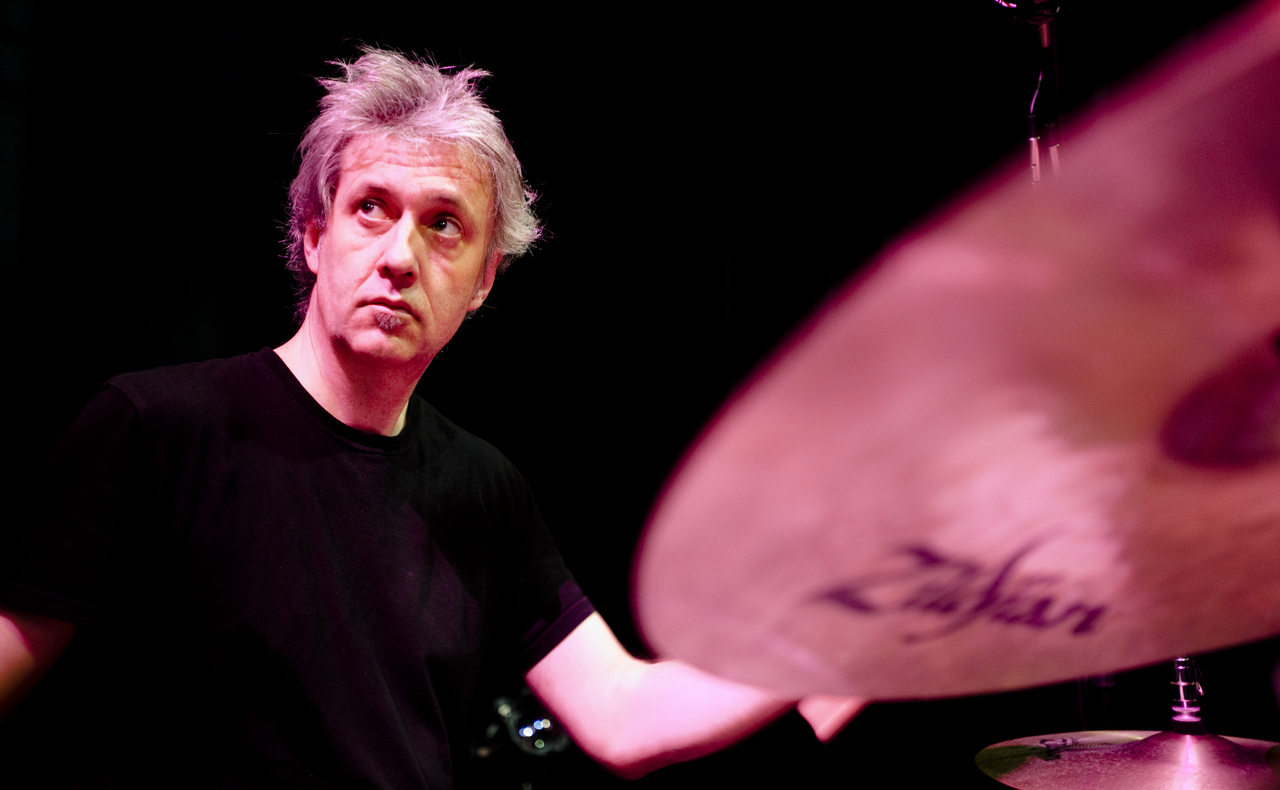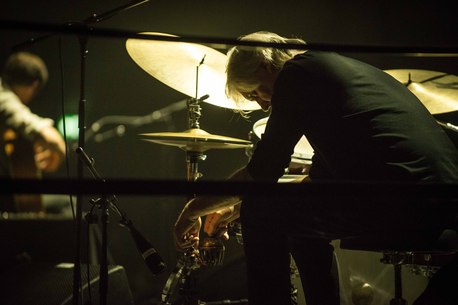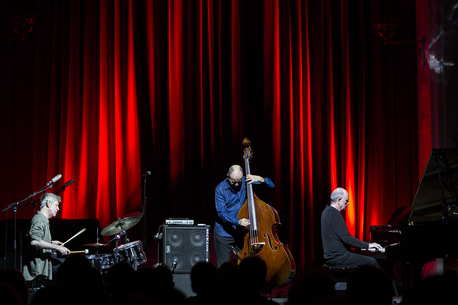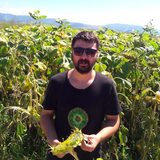Do you often collaborate with European musicians?
Personally I do because I live in Berlin, and The Necks does a little bit. For example, we’ve collaborated with musicians such as Evan Parker and Brian Eno in London, so we do that a little bit. But The Necks operates mostly in this tight unit of three people, but occasionally we do collaborate, but it’s not something that we do constantly.
When did you move to Berlin?
About eighteen years ago. I lived in Amsterdam before that for four years and in Tokyo for a couple of years. I go to Australia once a year at least. The last couple of years I’ve been there twice, early in the year and then in the middle of the year.
You play more frequently in Berlin then?
Yes, also The Necks have been touring very frequently, like a month on, a month off. We’ve done three or four tours in Europe, two in USA, occasional tours in Asia and in Australia in the east few years.
How was Asia?
We played in Japan and in China, just before that, and it was very different from touring in The States or Europe, where people know our music or they are more used to these artistic traditions of improvising, but it’s interesting.
What was the most recurring feeling you had in the last years?
I don’t know if one feeling has been recurring more than others. After thirty years, it’s really gratifying that people get to know us in cities like London and Berlin, especially in the last four, five years. I begin to feel like these are also hometown gigs for us, which is really gratifying. That’s the most recurring feeling, this awareness that slowly more people are following what we’re doing.
Do you follow any new music these days? Is there anything that has impressed you lately?
Yes, as much as possible. We’re discovering new music all the time, sometimes it’s not always new, it’s music that’s been around for a while or you rediscover things that you’ve been listening to a lot. I know I’ve spent some time in the last year or two listening to Algerian music, music from Mali, desert guitar music, for example group Inerane, group Doue, those Malian guys from Sublime Frequencies. I’ve been listening to a lot of Pygmy music lately, that’s a big rediscovery. I’ve listened to a bit before, rainforest music. Also the music of Jerry Hunt, even stuff from Bob Dylan. There are different periods that you go through, uncover, rediscover. I can’t really name one that I have recently discovered and that has blown me away, we’ve been very busy with things. I guess the latest I’ve been listening to is the local music here in Berlin when I can, Not that I haven’t engaged with that before - I’ve been listening to the scene here for twenty years!
Do you know any Romanian musician, such as Iancu Dumitrescu and the Hyperion Ensemble?
I don’t know them personally but I know the spectral composers and I’ve been listening to that quite a bit lately mainly because my girlfriend is doing a PHD in spectral analysis in psycho-acoustics as applied to artistic practices. But apart from that, I don’t know any improvisers.
There’s also a piece tonight by Horațiu Rădulescu.
Oh, really? Cool.
What would you, as an artist, say to young musicians who are trying to find their own path?
The music industry has changed so much in the last few years that sometimes I wouldn’t know where to start. But it all comes down to playing a lot and be interested in exploring and finding new music, playing with friends, talking about music and listening to music.
When I was growing up in Sydney I enrolled in the Conservatory to study music, but mainly it was just to find out what what other people are doing and playing together, I wasn’t really so interested in getting an education. It’s great to learn as much as possible, but for me then it was much more about the networking that was available there. If you can find like-minded friends, I would just encourage people to do that.
How do you see failure in the improvised music?
It’s an interesting idea. You learn from failure, and really, failure is a very subjective thing. Maybe failure is also about having a qualitative judgement. It depends on how you view what you have set out to do, whether there is success or failure. It’s a relative term, so if you don’t operate on that relative kind of duality in first place, success verses failure, then failure is not really a concern.
You learn from things that come out not really as expected or you learn not to expect too much, like the duality of expectations and outcomes. Maybe improvising musicians don’t deal with that process and are not interested in how people will interpret or misinterpret their music. If you engage in the process with integrity, then there is no failure. It’s just a process and you are diving into this pool that is your life, it’s all one process. If you put too much emphasis on failure or success, maybe improvising is not the best thing to do.
*main photo credits:
tony-buck.com




